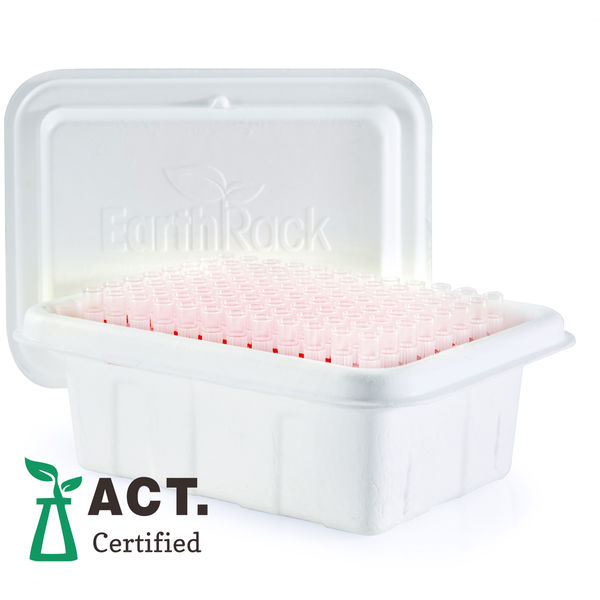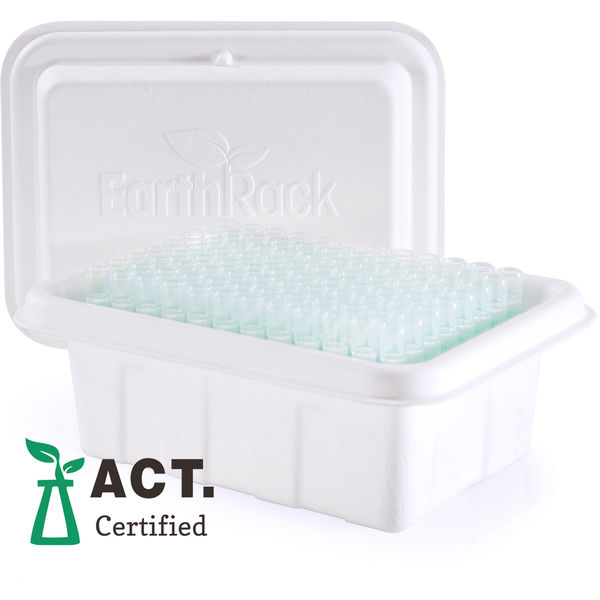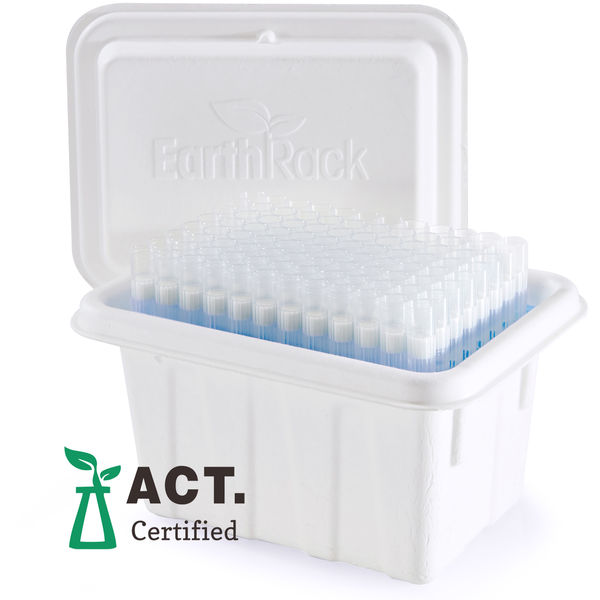
Biodegradable Pipette Tip Racks
Reduce Plastic Waste with EarthRack
Rainin biodegradable pipette tip racks are made from refined cellulose that is both biodegradable and compostable. EarthRack™ is an ideal solution for laboratories working to reduce plastic waste – the thin, recyclable polypropylene tip deck is the only plastic component. EarthRack is also certified BioClean Green, a rigorous new testing regimen developed by Rainin to ensure the purity of tips packaged in cellulose packaging.

Pipette Tips ER LTS 20µL F 960G/10
EarthRack™ (compostable/biodegradable rack) tips, 20 μL max. volume, for Rainin 2, 10 and 20 μL pipettes with LTS™ LiteTouch™, filtered, sterilized, 960 tips in 10 racks of 96.
Advantages of Biodegradable Pipette Tip Boxes
Documents
Eliminate Costs of Inaccuracy - Order Calibration & Service Tailored to Fit Your Pipetting Needs
Eliminate Costs of Inaccuracy - Order Calibration & Service Tailored to Fit Your Pipetting Needs
- Factory Trained/SAC-SINGLAS Certified Technicians
- State-of-the-Art Laboratory
- Network of Global Metrology Experts to Solve Any Issue
- 3 - 5 Days Turnaround Time
- Consumables Replacement

Order Pipette Service & Calibration
Expert Service – Tailored to Fit Your Pipetting Needs
Performance. Maintenance & Optimization
Compliance. Calibration & Quality
Expertise. Training & Consulting
FAQs
What are EarthRacks?
EarthRack is a new, first of its kind tip rack that is composed almost entirely of molded cellulose.
How do compostable pipette tip racks differ from traditional plastic ones?
The primary difference between EarthRack and conventional plastic racks is the amount of plastic mass they contain and the resulting plastic waste they generate. This is directly related to their impact on the environment, both in terms of plastic waste and the amount of CO2 they release into the atmosphere. For example, an EarthRack has 67-70% less plastic weight than the conventional Rainin polypropylene tip rack. This is the mass of plastic waste eliminated from landfills or incineration. Cellulose is regarded as "carbon neutral" and does not require petroleum as the starting material.
What is the composition of the EarthRack cellulose material?
EarthRack’s base and lid are composed of a blend of rapidly renewable bamboo and sugar cane fibers.
Is the entire EarthRack structure (all components) biodegradable and compostable?
67-70% of the entire ER mass is compostable. The polypropylene tip deck (an unavoidable plastic component) is not. A polypropylene tip deck is necessary because a hard, inflexible substance is required to accommodate the focused forces associated with tip loading.












